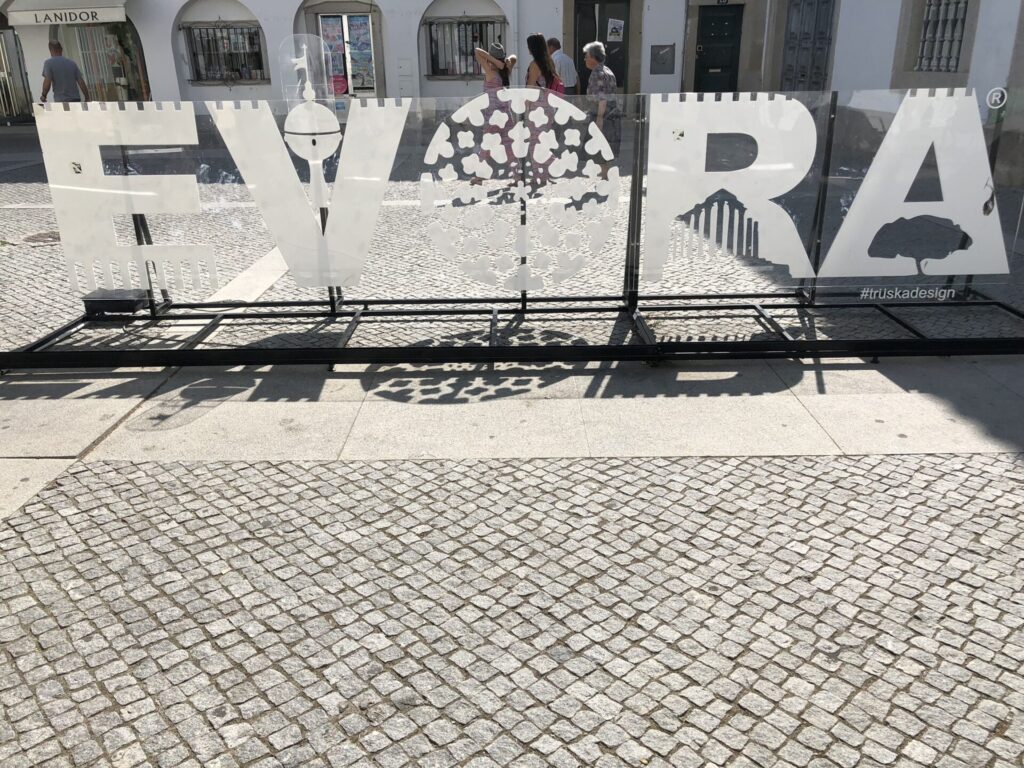
Portugal Unseen: The Perfect Day Trip to Évora from Lisbon
If you’re dreaming of a getaway that blends ancient history, timeless charm, and local flavors — all within easy reach
Portugal is a treasure trove of history, culture, and natural beauty, offering a rich tapestry of experiences for travelers. Start your journey in Lisbon, the vibrant capital known for its stunning architecture, lively neighborhoods, and mouthwatering cuisine. Just a short trip away, Sintra enchants with its fairytale palaces and lush landscapes. Head to Evora, a UNESCO World Heritage site, to explore ancient Roman ruins and beautifully preserved medieval streets. For a relaxing escape, visit Burgau, a picturesque coastal village perfect for unwinding by the beach. Whether you’re exploring historic landmarks, enjoying scenic hikes, or indulging in local wines, Portugal’s diverse cities and top activities promise unforgettable adventures.
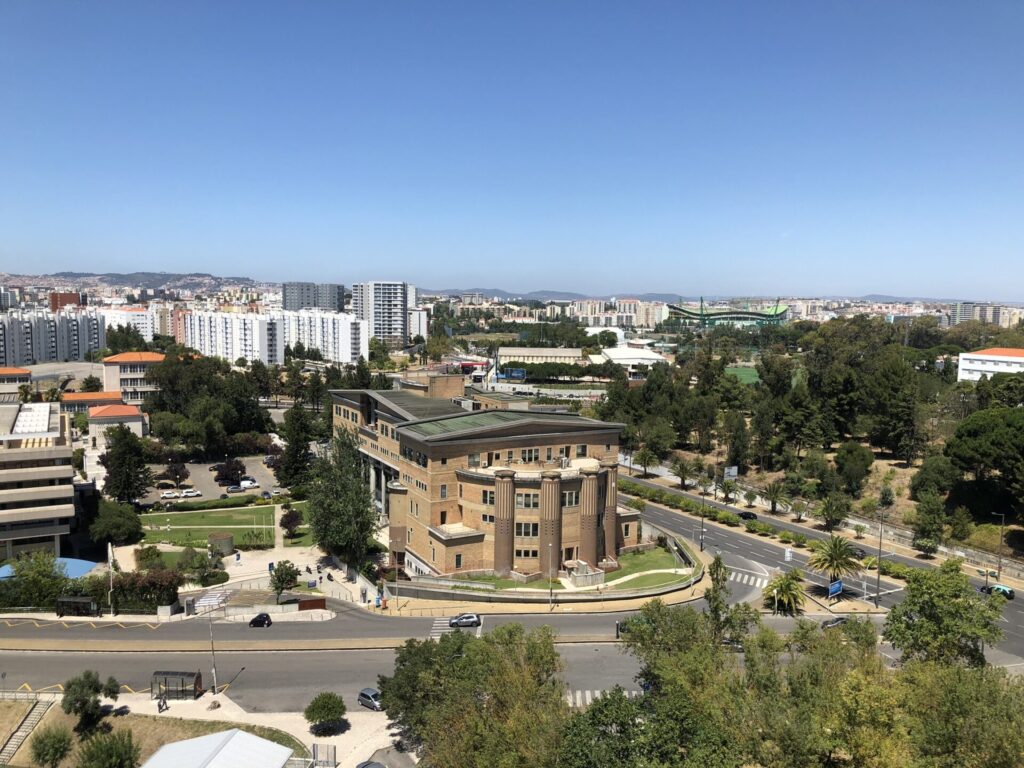

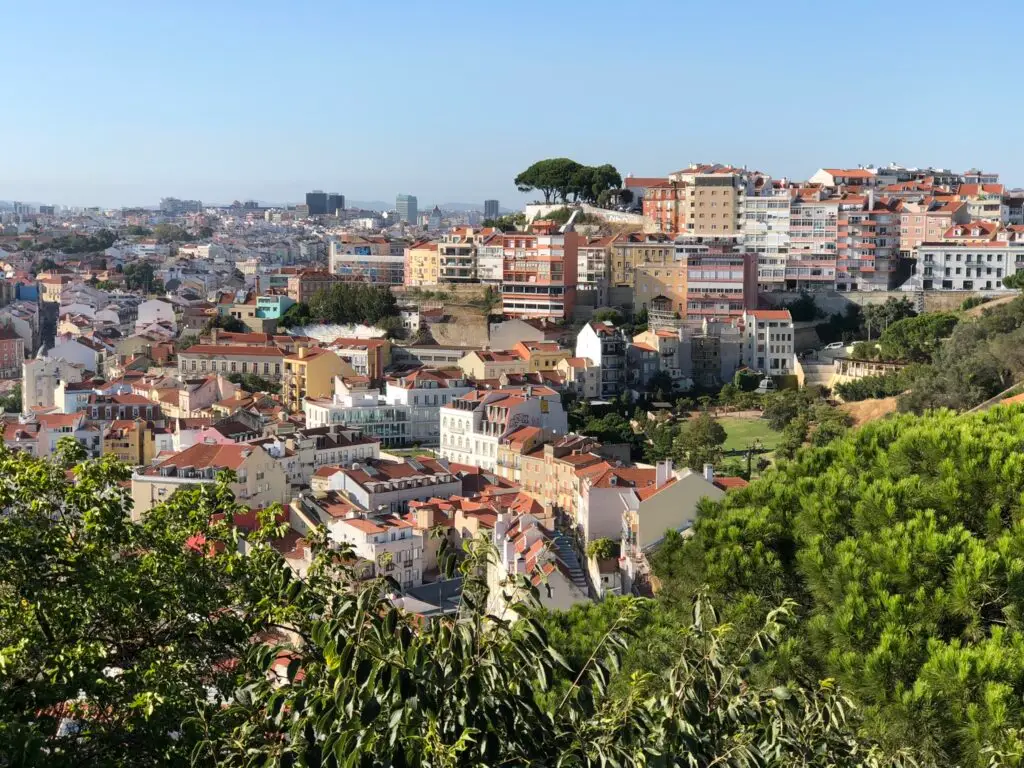
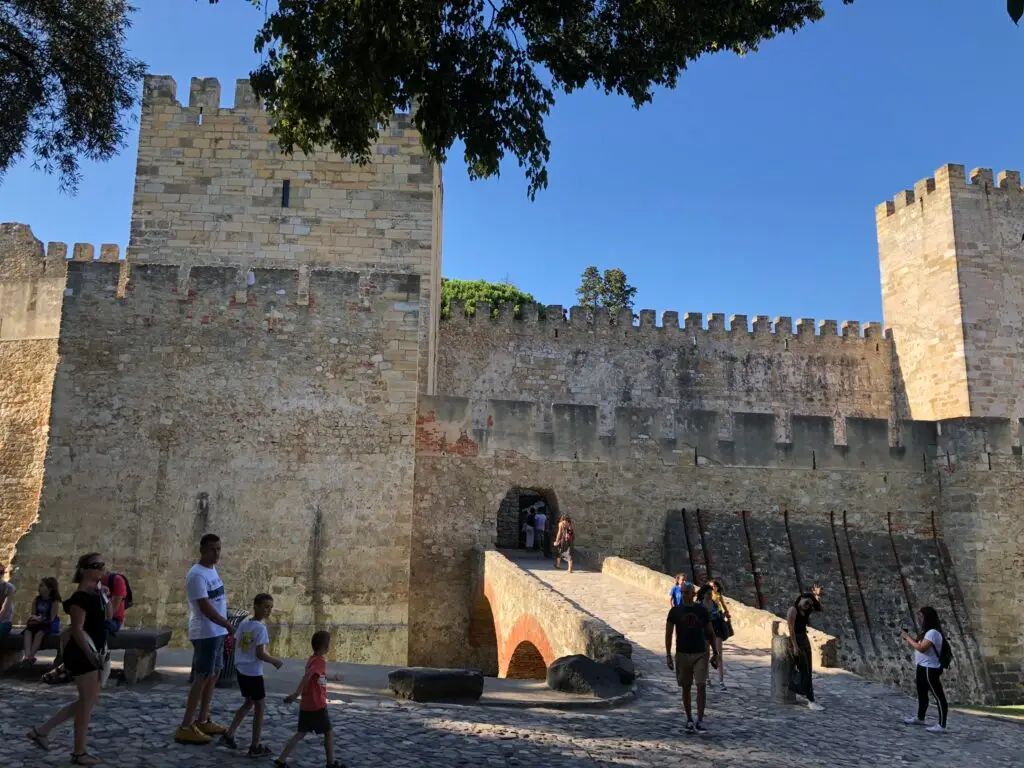
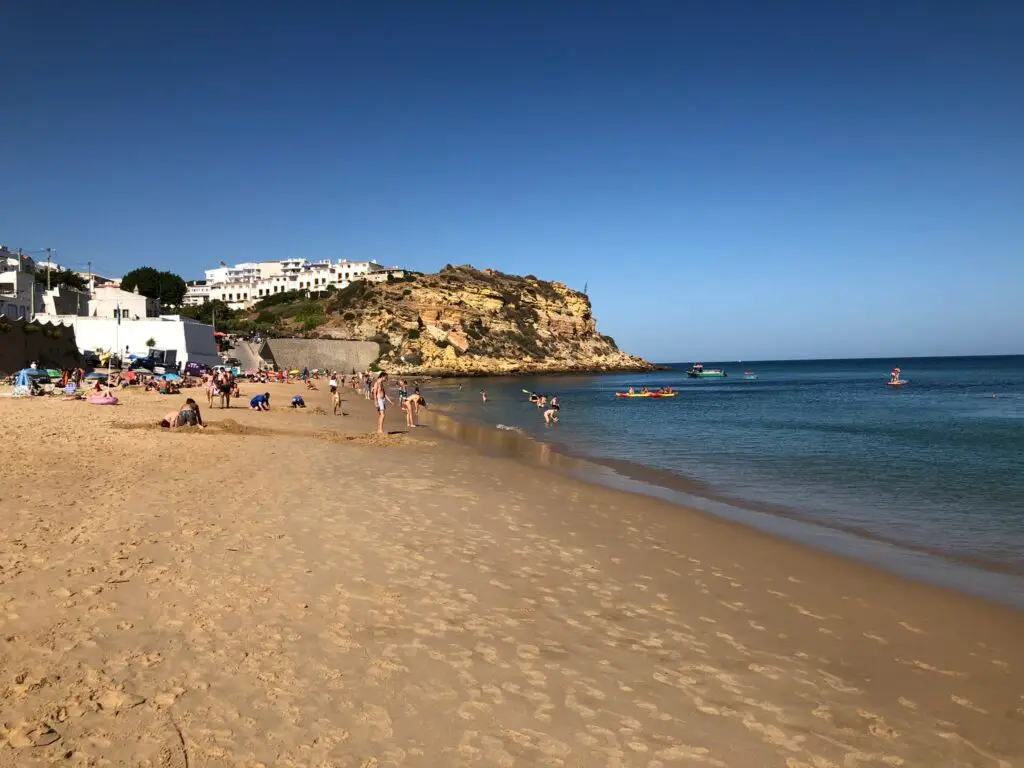
Portugal is a diverse and enchanting destination that offers something for every traveler. Known for its rich history, stunning landscapes, and warm hospitality, Portugal is home to vibrant cities, charming coastal towns, and UNESCO World Heritage sites. Whether you’re wandering the cobbled streets of Lisbon, exploring the mystical palaces of Sintra, or savoring fresh seafood in a seaside village, Portugal offers a unique blend of tradition and modernity. Here’s what you can expect when planning your visit to this beautiful country.
Language: The official language of Portugal is Portuguese, and it is spoken throughout the country. In most tourist areas, including cities like Lisbon and Porto, many locals speak English, especially in hotels, restaurants, and tourist attractions. However, learning a few basic Portuguese phrases like “olá” (hello), “obrigado/obrigada” (thank you), and “por favor” (please) can go a long way in enhancing your interactions with locals and showing respect for their culture. In smaller towns and rural areas, English may be less common, so it’s helpful to have a translation app or a phrasebook handy.
Currency: Portugal uses the Euro (EUR) as its official currency. Credit and debit cards are widely accepted in cities, restaurants, shops, and tourist attractions. However, it’s a good idea to carry some cash, especially when visiting smaller towns or local markets where card payments may not always be available. ATMs are readily accessible across the country, making it easy to withdraw euros as needed. The exchange rate typically hovers around 1 EUR to 1.1 USD, though it’s wise to check the current rate before your trip. If you’re using a non-European bank card, be aware of any international transaction fees.
Climate: Portugal enjoys a Mediterranean climate, which means mild winters and warm, dry summers, making it a year-round destination. However, the climate can vary depending on the region:
The best time to visit Portugal is during the spring (March to May) and autumn (September to October), when the weather is pleasant, and the tourist crowds are smaller. These seasons are ideal for exploring Portugal’s cities, enjoying coastal activities, and hiking in the country’s beautiful landscapes. Summer is also a popular time to visit, particularly for beach lovers, but expect higher temperatures and larger crowds.
Portugal offers a variety of efficient and easy-to-use transportation options that make it simple for visitors to explore its vibrant cities, charming villages, and scenic coastlines. Whether you’re navigating the streets of Lisbon, heading to the beaches of the Algarve, or venturing into the Douro Valley, Portugal’s well-connected transport system ensures a hassle-free travel experience. Here’s a guide to the best ways to get around in Portugal.
Trains: Portugal’s train network, operated by Comboios de Portugal (CP), is one of the most efficient ways to travel between major cities and regions. High-speed trains, such as the Alfa Pendular, connect Lisbon with cities like Porto and Faro, offering fast and comfortable journeys with onboard amenities like Wi-Fi and dining services. Regional trains cover smaller towns and scenic routes, providing a picturesque way to explore the countryside. Train tickets can be booked online in advance or purchased at stations, with discounts available for early bookings and senior travelers. Traveling by train is a great option for visitors looking to explore the country without the stress of driving.
Buses: For areas not covered by the train network or for more budget-friendly travel, buses are a reliable and affordable option. Long-distance bus companies like Rede Expressos and FlixBus offer extensive routes connecting major cities, towns, and popular tourist destinations. Buses are modern, comfortable, and equipped with Wi-Fi on many routes. Local buses are available in cities and towns for shorter trips, and many bus stations are centrally located, making it easy to access key attractions. Tickets can be purchased online, at bus stations, or through apps, making travel convenient and cost-effective.
Metro and Trams: Portugal’s major cities, particularly Lisbon and Porto, have efficient metro systems that provide a fast and affordable way to get around urban areas. The Lisbon Metro connects key neighborhoods and attractions, while Porto’s Metro do Porto links the city center with surrounding areas. Both systems are easy to navigate, with frequent trains and clear signage. For a more scenic way to explore, Lisbon’s iconic trams are a must-try. The famous Tram 28 takes passengers on a charming ride through the city’s historic districts, offering a unique perspective on Lisbon’s architecture and culture. Tickets for metros and trams can be purchased at stations, and many cities offer multi-day passes for unlimited travel.
Taxis and Ride-Hailing Services: Taxis are widely available in cities and towns across Portugal and can be hailed on the street, at designated taxi stands, or via phone. Fares are metered, and tipping is not required, though rounding up to the nearest euro is appreciated. For added convenience, ride-hailing apps like Uber and Bolt operate in Portugal’s major cities, providing a cost-effective and easy-to-use alternative to traditional taxis. These apps allow for cashless payments and offer transparent pricing, making them a popular choice for short trips and airport transfers.
Car Rentals: Renting a car is our favorite option for exploring Portugal’s scenic countryside, coastal regions, or smaller towns at your own pace. Major car rental agencies operate in airports, train stations, and city centers. Portugal’s roads are well-maintained, and the country’s A-roads (Autoestradas) connect major cities with toll highways that are fast and efficient. Be aware of local driving laws, such as speed limits and parking restrictions, especially in historic city centers where streets can be narrow. Renting a car is ideal for visiting more remote areas like the Alentejo region or exploring the Douro Valley wine country.
Bikes and Scooters: For a more leisurely and eco-friendly way to explore, consider renting a bike or electric scooter in Portugal’s cities and tourist areas. Lisbon, Porto, and coastal towns like Cascais have dedicated bike paths, making cycling a pleasant way to take in the sights. Bike-sharing programs, such as Gira in Lisbon, offer affordable short-term rentals, and electric scooters are available in many urban areas through apps like Lime. Both options are great for exploring cities at a slower pace while enjoying the fresh air.
Domestic Flights: For travelers looking to cover longer distances or visit the Portuguese islands of the Azores or Madeira, domestic flights are a convenient and time-saving option. Airlines like TAP Air Portugal and Ryanair operate frequent flights between major cities like Lisbon, Porto, and Faro, as well as to the islands. Domestic flights are affordable, and booking in advance can help secure the best rates. Airports are well-connected to city centers via public transportation or taxis, making air travel an efficient choice for covering large distances.
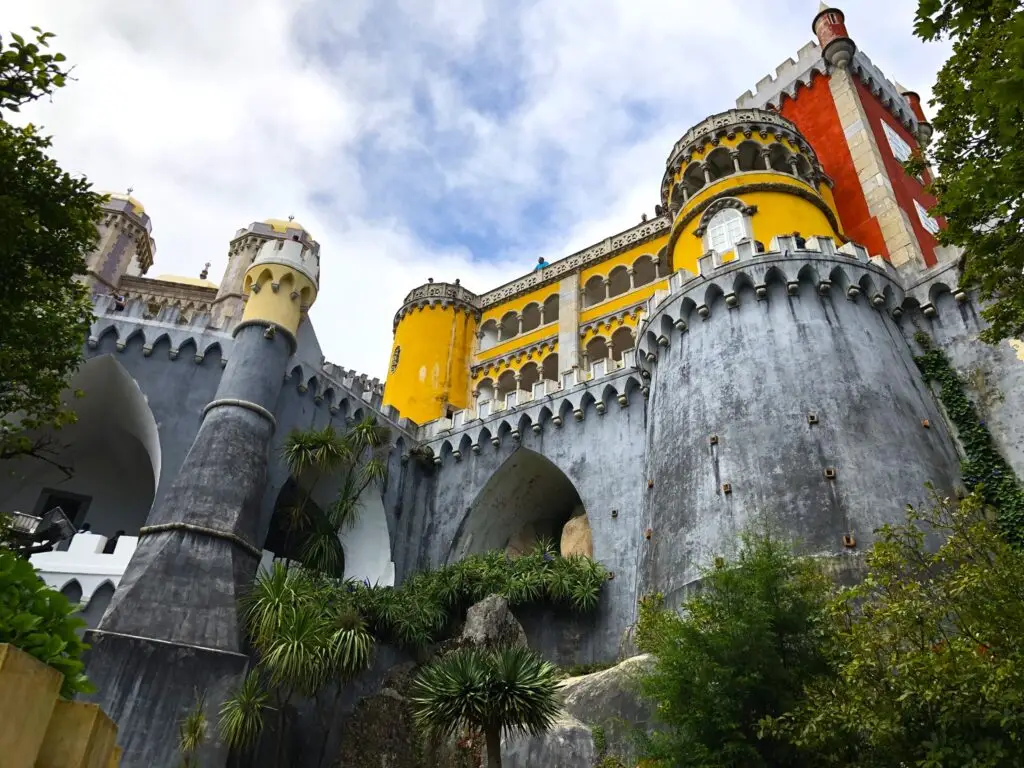
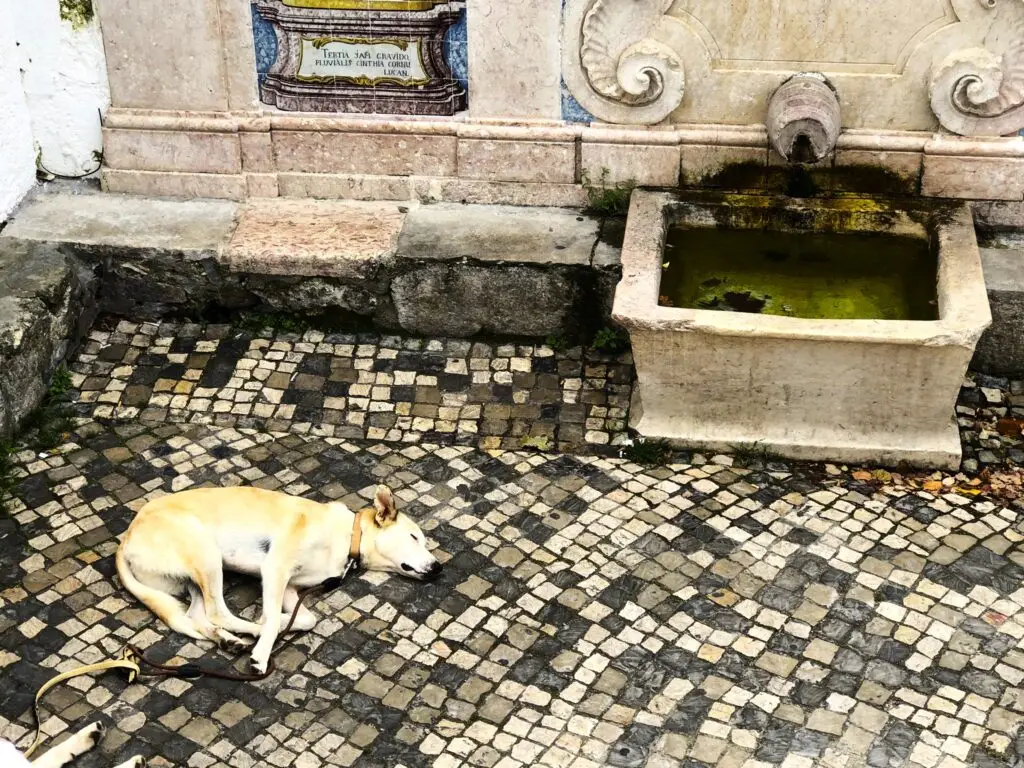
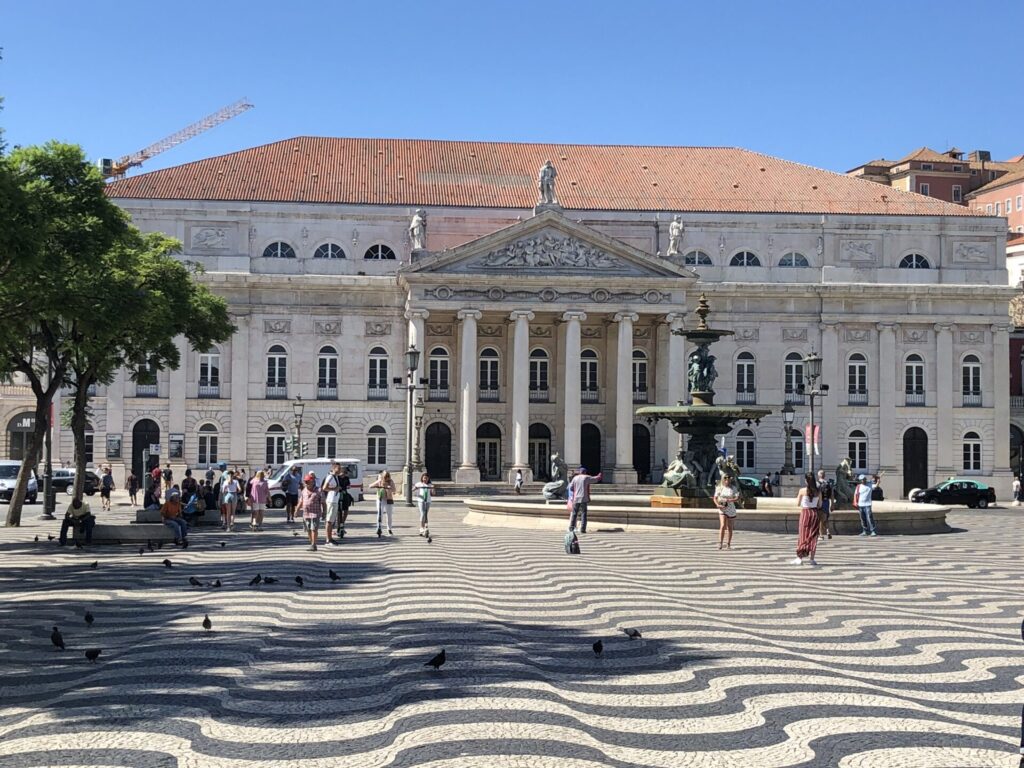
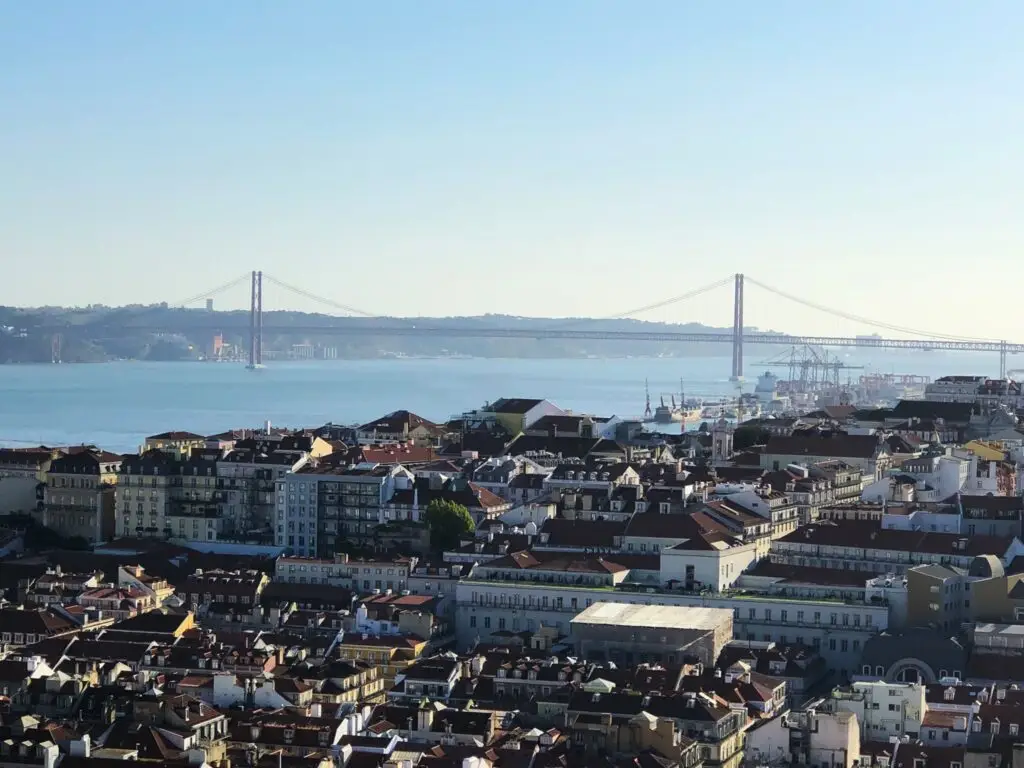
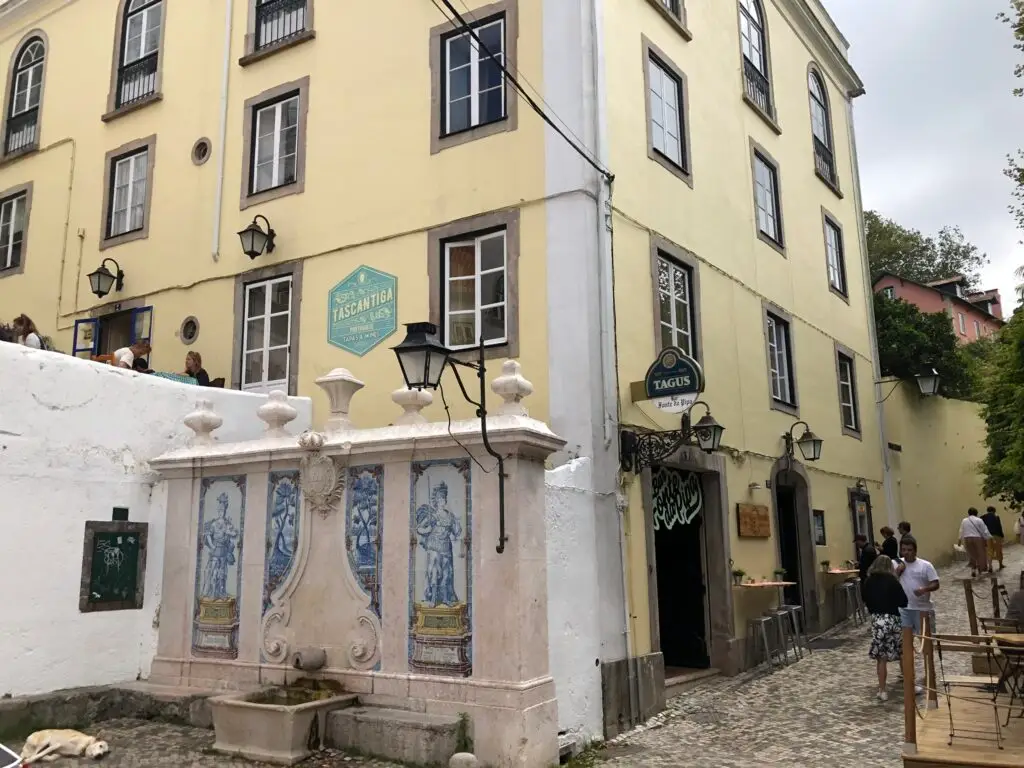

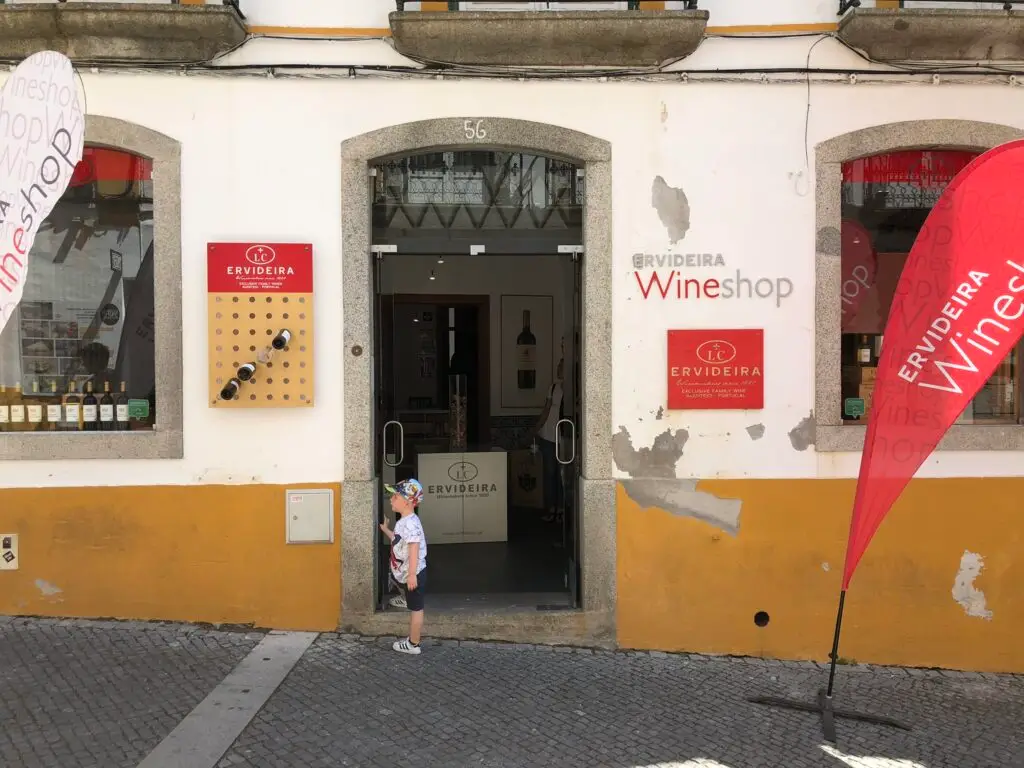
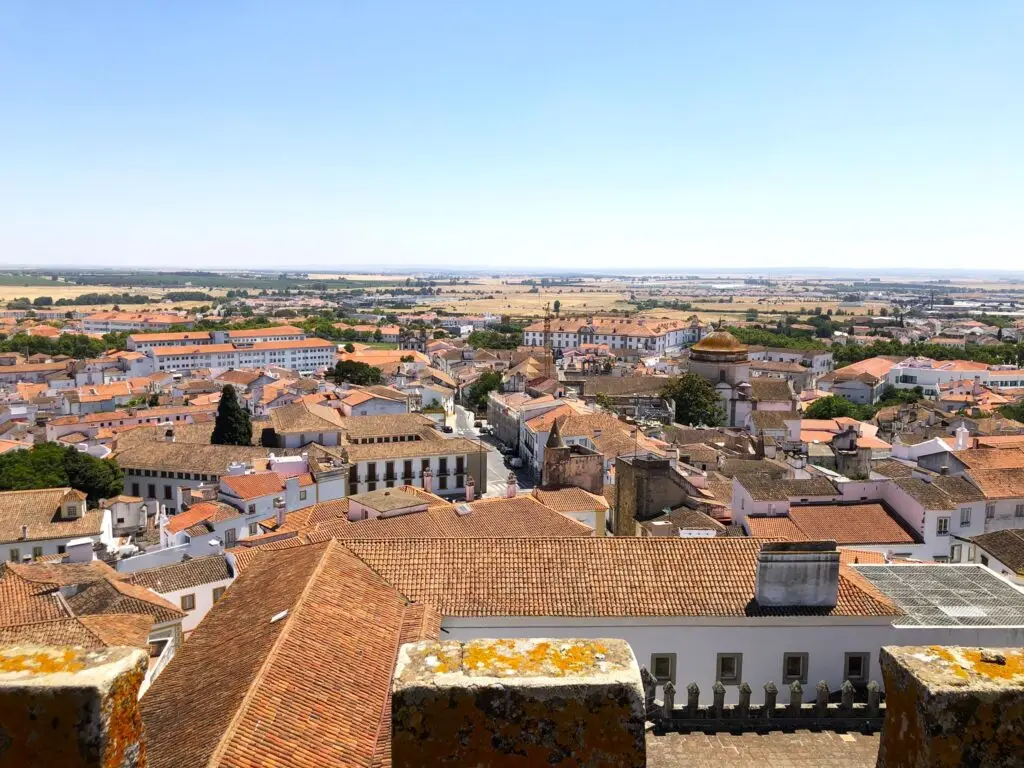

If you’re dreaming of a getaway that blends ancient history, timeless charm, and local flavors — all within easy reach

Portugal Hidden Gems: Intoducing Burgau Nestled along Portugal’s stunning Algarve coast, Burgau is a favorite of the quintessential Portugal hidden

The Ultimate Lisbon Itinerary to Explore History, Art, and Culinary Delights in Portugal’s Vibrant Capital Lisbon is a city that uniquely
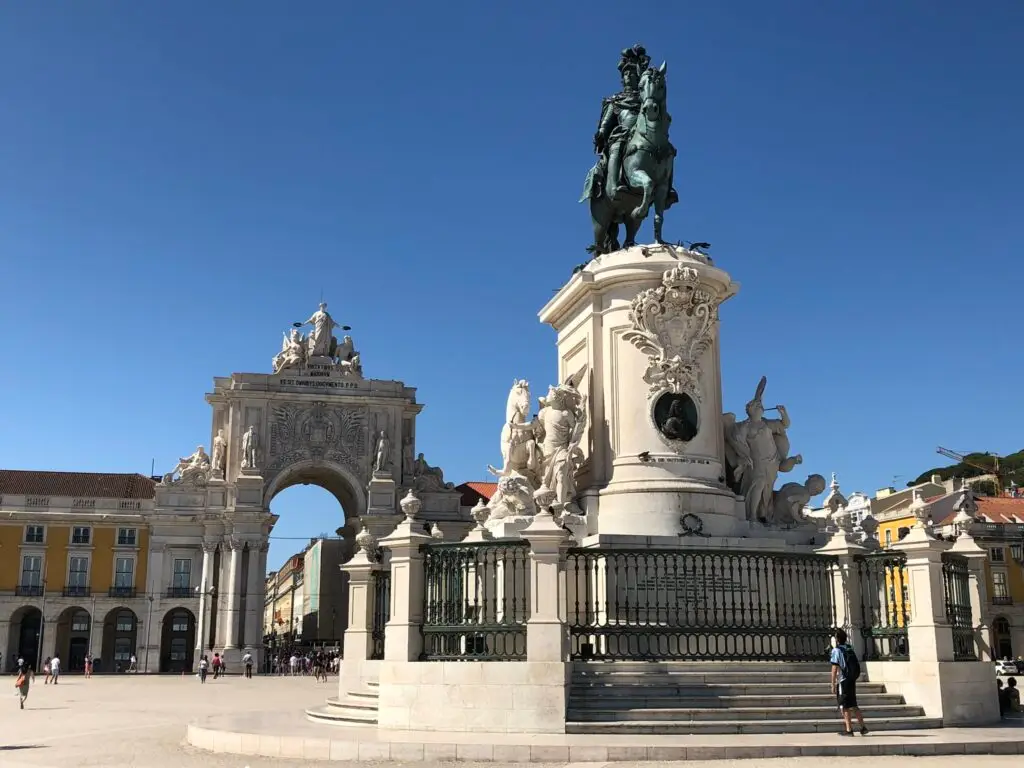
In this episode, we complete our European road trip with a quick four day excursion in Portugal. Driving from Spain